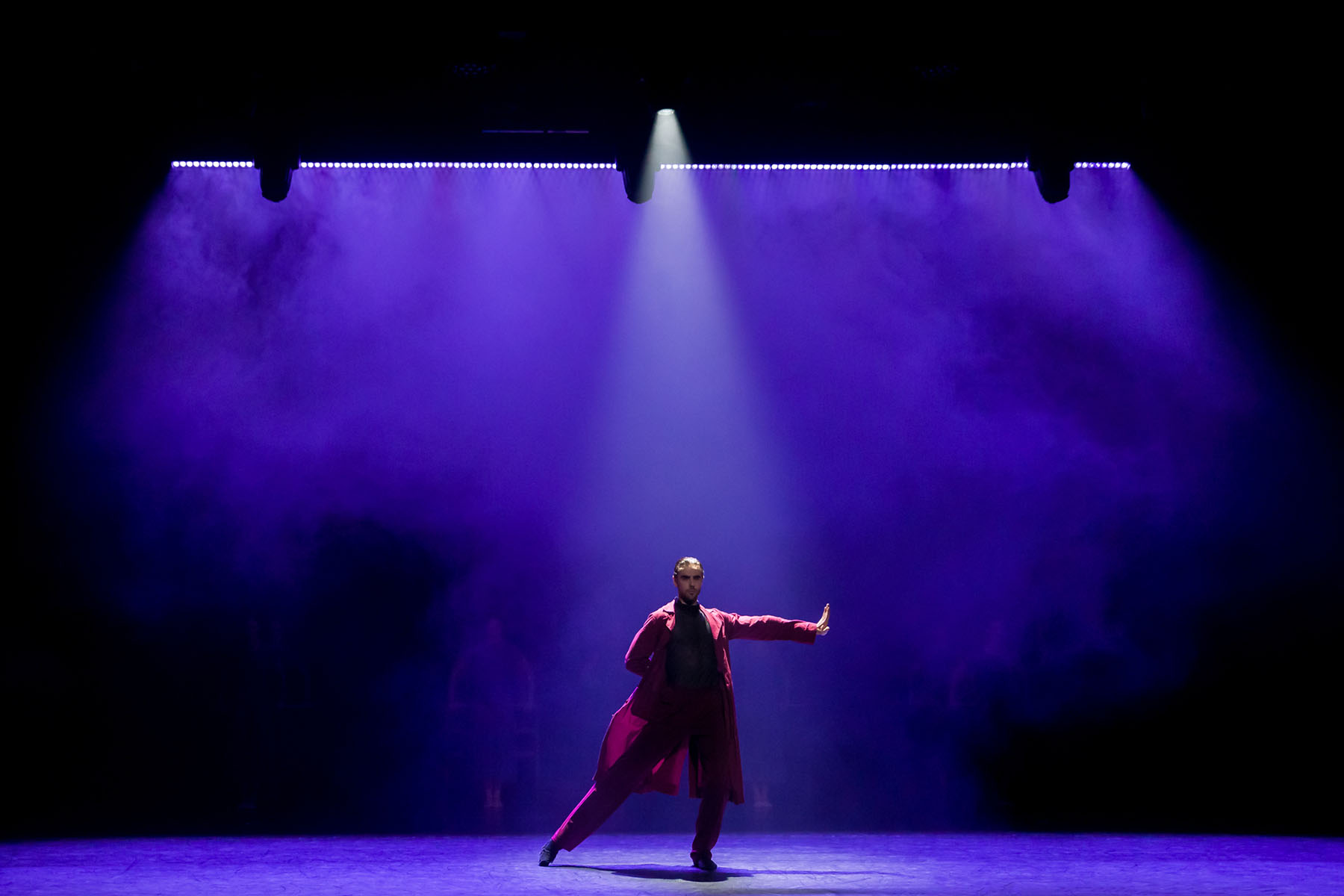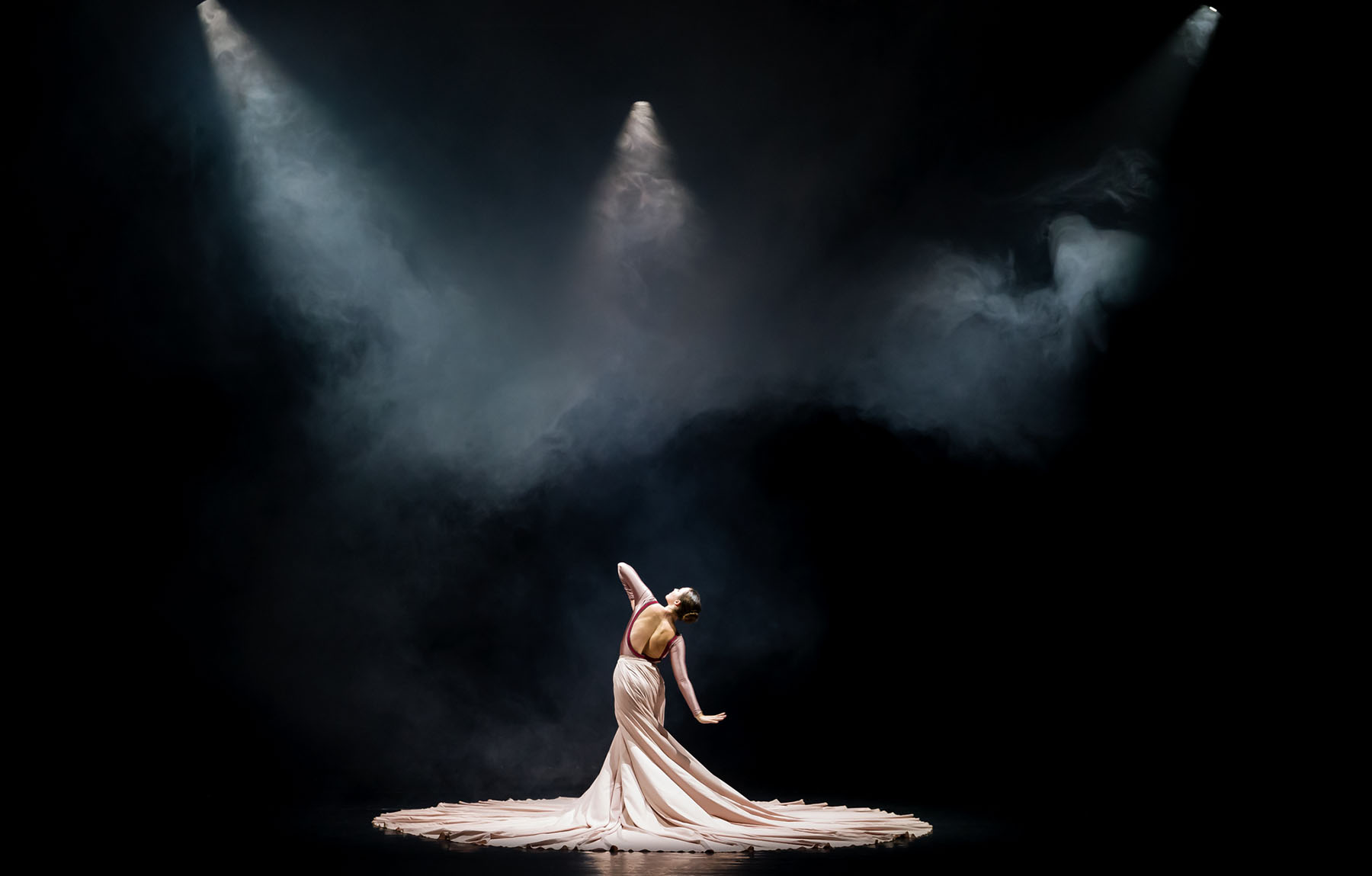
The grace and fluidity of dancer’s movements were enhanced by an equally elegant lighting design by Koen De Clerck for Cogétama a specially choreographed ballet work created and produced by Glen Lambrecht Productions, commissioned by the Municipality of Aalter. It was staged at the City Hall Auditorium of Aalter in Belgium and played 12 completely sold-out performances.
De Clerck used an all-Robe moving lighting rig to give him the flexibility and dynamics needed to light the detail, depth, and nuance of the piece, which revolved around the famous Cogétama cigar and the factory which produced it and how it affected and influenced the communities living and working around the areas of Aalter and Knesselare for over 100 years. The legacy of the cigar factory has left an indelible imprint on local culture and history.
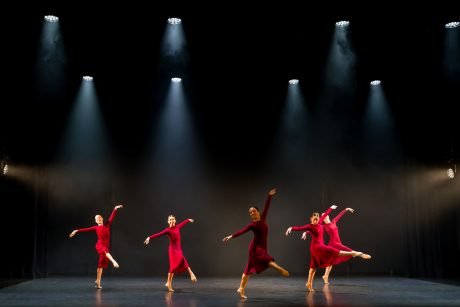 Glen Lambrecht, a professional ballet dancer who choreographed as well as produced the show, explained that they decided to go for a raw, direct, and minimalist setting without lots of elaborate scenic elements, instead setting the scene and realism of the atmosphere with “amazing lighting to immerse the audience and take them on the journey.”
Glen Lambrecht, a professional ballet dancer who choreographed as well as produced the show, explained that they decided to go for a raw, direct, and minimalist setting without lots of elaborate scenic elements, instead setting the scene and realism of the atmosphere with “amazing lighting to immerse the audience and take them on the journey.”
Effectively, light became another dancer and character in the piece, and once De Clerck was onboard as LD—the two have worked on previous projects—he knew he needed the most versatile and adaptable lighting fixtures and chose Robe.
Fourteen Robe T1 Profiles were at the heart of the lighting rig, five positioned FOH for front lighting, keying, and specials, with nine in the overhead rig as top and back lighting plus more specials.
Eight out of 14 Spiider wash beams were utilized for top and back lighting, with the other six deployed three a side for side and cross lighting, and there were eight Tetra2 moving LED battens that were also part of the top rig, positioned upstage towards the back.
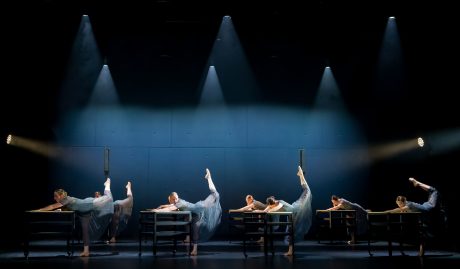 De Clerck’s challenge was—with lighting being so central to the narrative—to ensure that it didn’t become gimmicky, crass, or start distracting from the dancers or the story. “It always had to be there yet appearing in this supporting role—almost understated—whilst actually underpinning all the action,” he explained.
De Clerck’s challenge was—with lighting being so central to the narrative—to ensure that it didn’t become gimmicky, crass, or start distracting from the dancers or the story. “It always had to be there yet appearing in this supporting role—almost understated—whilst actually underpinning all the action,” he explained.
Using moving lights was essentially the only way to get lighting everywhere on the stage and into all the corners and edges and other places it was needed. During the show, the cast used eight tables as props—which they manually shifted around—and without using moving lights it would have been impossible to capture these scenes effectively and transfer the energy and emotion across to the audiences.
The shuttering capabilities of the T1s were used extensively for making shapes on the stage and defining different areas and spaces. The Tetra2s were used for several effects including dramatic back light and hi-impact curtain effects when combined with haze.
The show was also recorded for future broadcast, streaming and other digital actions, so using lights that were all camera friendly and flicker-free was another bonus.
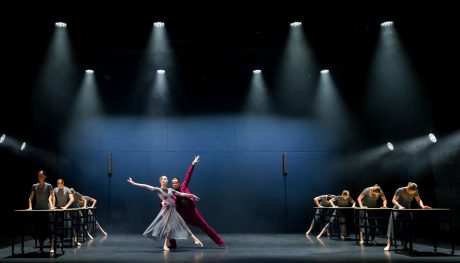 De Clerck also appreciated the graduated fade outs and being able to go to a proper blackout! In fact, it was so pitch dark between some scenes that they had to add markers for the dancers!
De Clerck also appreciated the graduated fade outs and being able to go to a proper blackout! In fact, it was so pitch dark between some scenes that they had to add markers for the dancers!
The color palettes he used were simple and powerful with multiple whites coupled with some harsher blues and reds to reinforce specific moments, but generally he explored the complex beauty and purity of monochromaticity, working with multiple layers of different color temperature whites.
He underlines how great it also is to be able to work with the totally different Robe lighting ranges where the colors are always so consistent—a feature on which Robe has fully focused. De Clerck loves the silence of the T1’s. For a piece like Cogétama this was essential.
Side lighting for dance shows is often a similar height to the performers, but part of the Cogétama set was two large 3-metre-wide panels with doors, used frequently throughout and shifted around the stage, so the side lights had to be rigged three meters off the floor allowing the panels to be maneuvered on and offstage underneath. This was another reason that Spiiders were a good choice with their extra power and focusability.
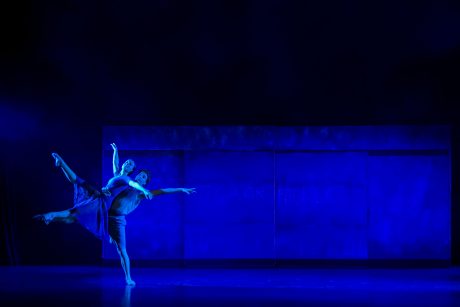 The show ran for an hour and 35 minutes plus an intermission and comprised 21 scenes, so it was a very dynamic, fast-paced environment that covered a lot of ground, all set to a special music track compiled by Lambrecht.
The show ran for an hour and 35 minutes plus an intermission and comprised 21 scenes, so it was a very dynamic, fast-paced environment that covered a lot of ground, all set to a special music track compiled by Lambrecht.
De Clerck and Lambrecht worked very closely and collaboratively in evolving the show, bouncing ideas off one another. Lambrecht also has some very specific ideas about lighting and knows through experience how it can work optimally and physically with the 27 dancers as well as the wider concept of movement.
De Clerck commented on how working so closely with a director / choreographer like Lambrecht really upped the ante in terms of his own lighting skills: “It was an intense but an extremely enjoyable process which enabled us to push technical, creative and aspirational boundaries all the time in terms of the show – and the cast and audience experience – we were producing!”
Lighting programmer Glenn De Clerck used his own MA Lighting grandMA2 console, with all the other lighting equipment supplied by L&L Stage Services. “Glenn’s exceptional programming skills made it possible to get the show completely programmed within an extremely limited timeslot. He was an incredibly positive force to work with during the show’s development,” confirmed De Clerck.
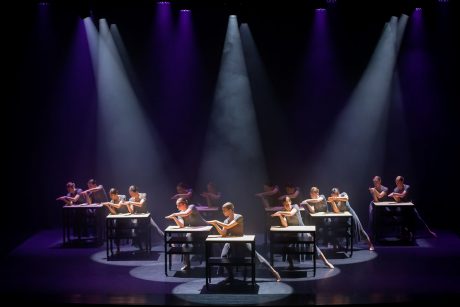 De Clerck has been using Robe products for some time, and for this production both he and Lambrecht knew this would be their perfect choice. De Clerck knew how Lambrecht wanted the choreography to work as he was also involved in the cast rehearsals, and he knew what luminaires were needed to achieve the right atmosphere for each scene, and that could be fitted to their budget. Based on all these considerations, T1 Profiles and Spiiders were top of the list.
De Clerck has been using Robe products for some time, and for this production both he and Lambrecht knew this would be their perfect choice. De Clerck knew how Lambrecht wanted the choreography to work as he was also involved in the cast rehearsals, and he knew what luminaires were needed to achieve the right atmosphere for each scene, and that could be fitted to their budget. Based on all these considerations, T1 Profiles and Spiiders were top of the list.
They also worked on the premise of a little light going a long way. It wasn’t a massive rig, but used judiciously and intelligently, they maximized all the fixtures for every millisecond of the performance working them hard and very appropriately to produce the stunning results that wowed the public and the local media, all helping make this completely unique production such a success.
Further information from Robe: www.robe.cz
Photos: by Koen de Klerck, KODEC Photography
